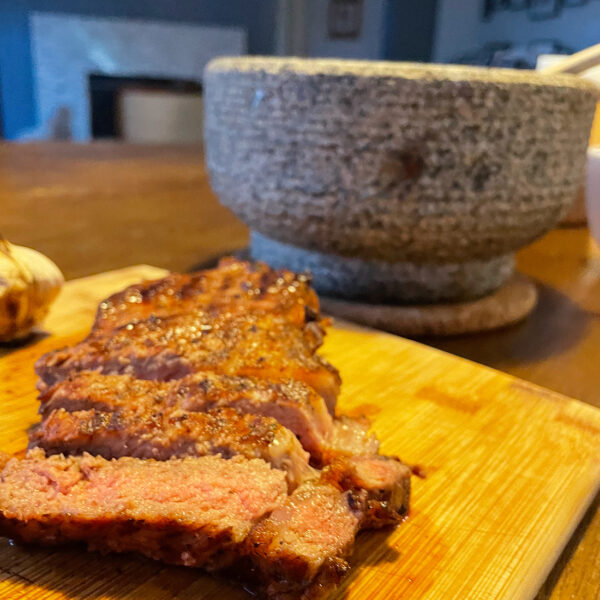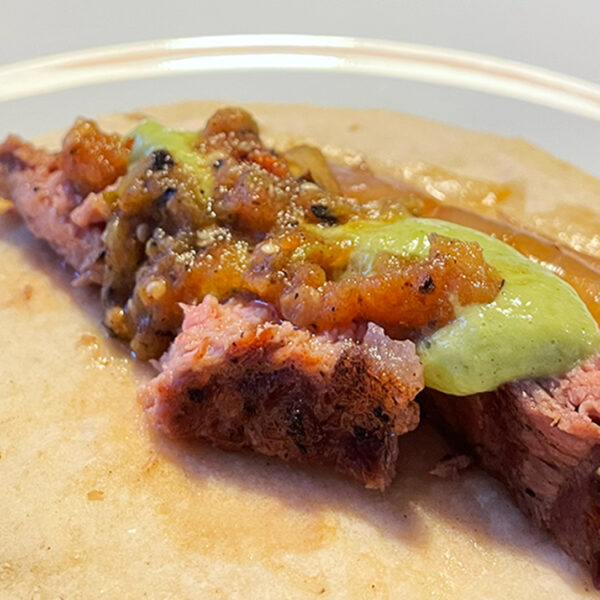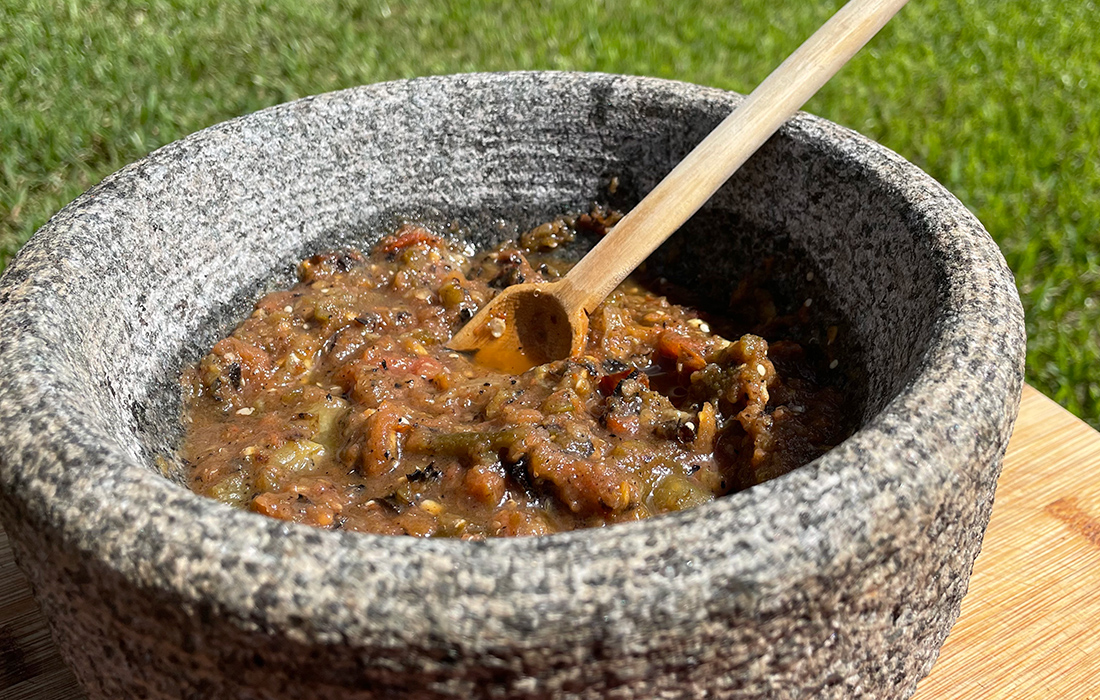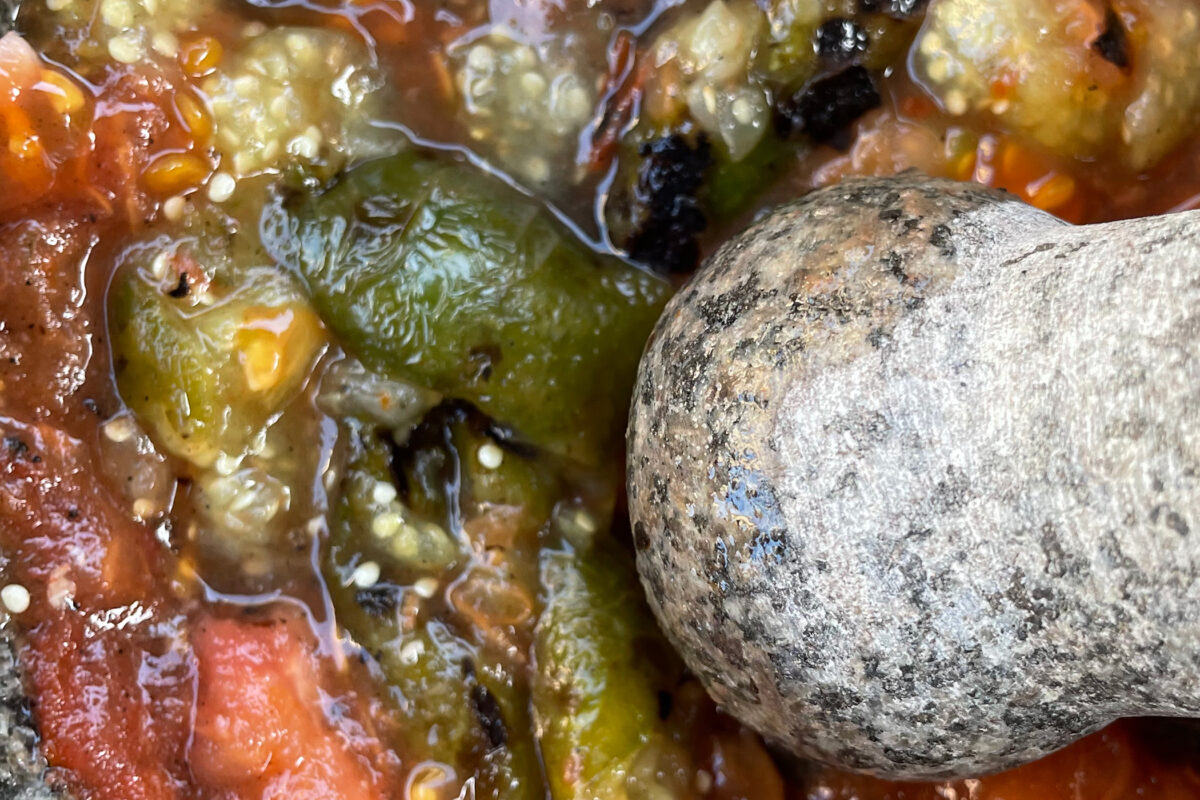Just try it, if you do not like it,,
one day you just might.
While growing up, my mother taught my sisters and me to experience all kinds of flavors. She is a magnificent cook, and her favorite saying at the table was: “just try it; if you do not like it, one day you just might.” So even though that never happened with Fried Liver with Onions, it did with the rest of the food I have tried. Indeed, I have learned to try every dish at least once, and salsas too.
My perception of food is more than a necessity; cooking and eating are a pleasure. There is a lot of similitude between a great meal and a great design. I have enjoyed and appreciated delicious plates for at least forty years and designed for thirty. When it comes to cooking, I prefer the result, although I enjoy cooking in the company of my wife and friends—especially on the weekends. On the other hand, I enjoy more the design process than the design solution. However, both traits are built upon methodologies, timing, and personal “touch.” The style for design and seasoning for cooking.
“Hard work always pays off” might be among the most over-quoted sayings in all cultures, but it is true. Cooking is all about timing and process; it is labor-intensive and time-consuming. The process, timing, and presentation will influence the flavors and appreciation of the final dishes. In contrast, the strategy, story, target audience, message, production, and consumer interaction will influence the design result. I love and appreciate cooking and designing because of the similarities in processes and outcomes.


Salsa de Molcajete.
In my opinion, not other salsa can top the roasted salsa or salsa de molcajete as known in Mexico. This salsa is a most for many Mexican plates such as: carne asada (grilled steak), tacos, quesadillas, carnitas (braised pork), sopes, fried eggs, and of course with tortilla chips.
Molcajete.
Molcajete comes from Spanish [ moler / mowlr / ] to grind + [ cajete / ka’xete / ] pot, bowl. Molcajete is a mortar for grinding spices and seeds. The molcajete was used by pre-hispanic cultures several thousand years ago. Traditionally, the molcajete is carved out of vesicular basalt and they have only three short legs. In Mexican cuisine, the molcajete is used to grind spices and prepare salsas and guacamole. The salsas and guacamoles prepared in these mortars have a distinctive consistency and texture that cannot be replicated by any other cooking method or any blenders.

Preparation.
No other salsa can top the roasted salsa or salsa de molcajete, known in Mexico. This salsa is a must for many Mexican plates such as carne asada (grilled steak), tacos, quesadillas, carnitas (braised pork), sopes, fried eggs, and of course with, tortilla chips.
tomatoes on a grill
Roast three tomatoes, two tomatillos, one or two garlic cloves, two serrano peppers, and one jalapeño pepper (use one serrano and two jalapeños for less hot-spicy salsa). For this salsa, using charcoal for roasting is essential; it will add a delicious subtle smokey flavor and allow you to play with tequila and fire. Indeed, the tomatoes, tomatillos, and peppers get tequila-flamed; use only half Caballito (tequila glass), and the other half is for you to enjoy while roasting the ingredients. Once all the ingredients are well roasted, integrate them into the molcajete. First, the garlic, peppers, tomatoes, and tomatillos last. I always add a quarter or half of a tequila Caballito (1.5–2 oz) and only season with salt. Then, keep smashing and mixing until everything is very well integrated.
Ingredients.
3 tomatoes
2 tomatillos
1 or 2 garlic cloves
1 or 2 serrano peppers
1 or 2 jalapeño peppers
2 oz. of favorite Tequila
Salt


Even though it will be gone way before! The roasted salsa leftovers—if any—will last fresh for no more than one week. Indeed, some may think this salsa is mild, hot, or extremely hot, but as my mom used to say: “just try it; if you do not like it, one day you just might.”
Cheers, and enjoy!
A recipe has no soul. You, as the cook, must bring soul to the recipe.
Thomas Keller • American Chef.